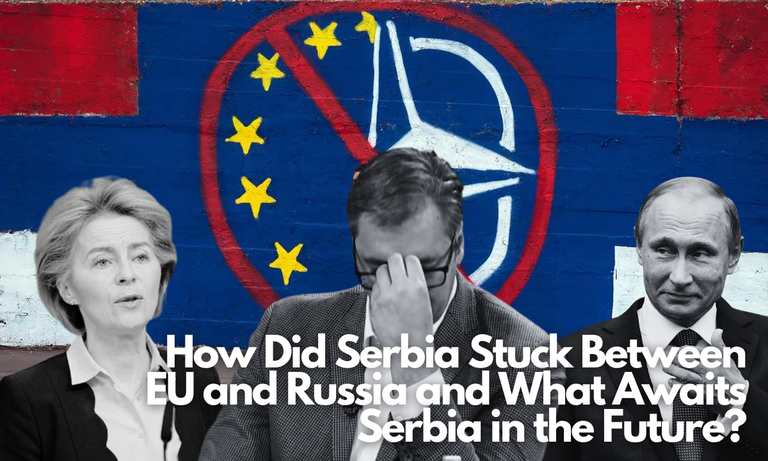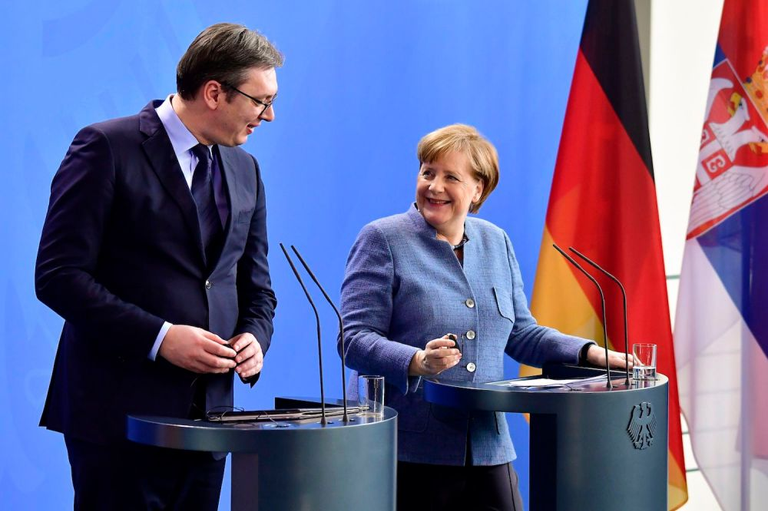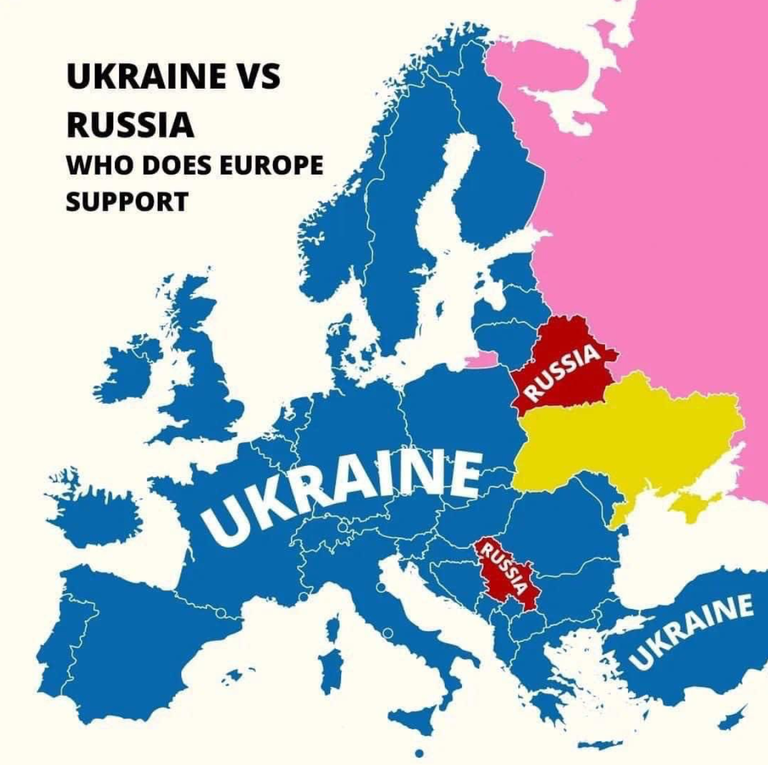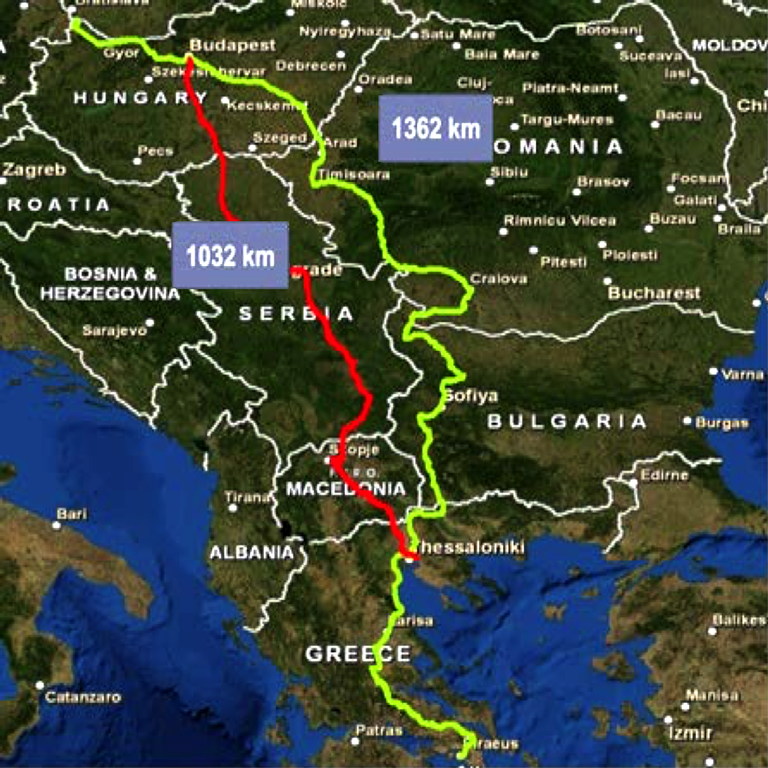
Public discontent in Serbia has arguably reached a new high since the Milosevic era, with reoccurring protests against incumbent President Alexander Vucic his perceived corruption and autocratic tendencies. In response in May Vucic stepped down as leader of the ruling Serbian Progressive Party or SNS, while remaining in post as president. However, with general elections less than two weeks away, it's far from over for Vucic. Having spent more than 30 years in politics, Vucic has perfected a balancing act between East and West, which has enabled him to carefully craft an image of a well respected statesman among world leaders, particularly in China and Russia, thus maintaining his strongman status. So in this article, we're gonna explore vertex geopolitical juggling and how he manages to engage with eastern powers while remaining a strong candidate for EU membership.
To better understand Serbia's current foreign policy we need to examine Serbia's politics in the post Milosevic era, as well as Vucic his own political history. And that's because Vucic has switched political alliances many times in the past. He started his 30 year political career as the minister of information in the ultranationalist Serbian Radical Party, led by politician and convicted war criminal Vojislav Seselj in 1993. 15 years later after two wars, a NATO bombing campaign, the overthrow of Milosevic, and Kosovo's independence, a new pro-European agenda emerged. This shift was led by the dominant Democrat Party and EU accession quickly became a hot topic in Serbian politics and in this new political environment. Vucic's predecessor announced in 2009 that Serbia's foreign policy would be based on maintaining good relations with four key entities: the EU, United States, China, and Russia. Also during this time Vucic himself moved from the Radical Nationalist Party to the newly reformed pro-European Serbian Progressive Party, or SNS which splintered from the Serbian Radical Party over disagreements regarding EU integration. So what are the SNS's foreign policies and attitude towards the EU?

v
Well, unlike many other Eastern European populist parties the SNS is formally pro-European Union. However, as the EU integration process has stalled, the SNS has increasingly foregrounded non-European actors in Serbia's political landscape, praising Russia and China as reliable partners. On paper Vucic hasn't given up on European integration and has perfected his predecessor's foreign policy ambivalence, maintaining good relations with Russia and China while simultaneously insisting that he still wants to join the EU eventually. But as negotiations between the EU and Balkan candidate countries have faltered over the years, the region has seen increased strategic competition from countries like Russia and China, and Vucic has proven remarkably adept at playing off these geopolitical rivalries. In essence, Vucic has maintained cordial relations with what you might euphemistically describe as the West, specifically the EU and US and also the East, countries like Russia and China. And this delicate balancing act has helped Vucic advance both his domestic and foreign policy interests.
When it comes to the West domestically, Vucic is tentative support for EU accession reflects the view of many Serbs who are in favor of a session in principle but increasingly apathetic as accession negotiations continually stall. Steady relations with the EU are also in Serbia's economic interests given the EU is, by a long stretch, Belgrade's largest trading and investment partner. In terms of foreign policy, virtue has successfully reinvented himself by shedding his nationalist past and now portrays himself as a pro-European reformer who aims to resolve long standing regional issues. In 2013, for example Vucic signed the Brussels Agreement, which agrees on the integration of Serb majority municipalities in North Kosovo into the Kosovar legal system, and many Western politicians are apparently convinced and provide tacit support for Vucic, or at least refrain from explicit criticism because they think that they need to keep Vucic on side to guarantee regional stability, even though he regularly stokes regional tensions and there's been no substantial progress on the Kosovo issue in the last decade. But the West is also concerned that Serbia's strong ties with Russia could disrupt regional security, which contributes towards Western leaders lenient stance towards Belgrade.

This is why, despite his controversial politics, the EU has been reluctant to cut ties with Belgrade and it's notable the EU refused to sanction Serbia after the September attacks in northern Kosovo, despite provisional plans to do so. When it comes to the east though and more specifically, Russia Vucic's ties to Putin, appeal to Serbs with pro-Russian sentiment and protects him from nationalist opposition. This has also allowed Serbia to maintain access to cheap Russian gas. While Vucic did condemn Russia's aggression against Ukraine at the UN in September of this year, he did refrain from supporting EU sanctions against Russia. In justifying his decision, Vucic alluded to historical grievances when Serbia was under sanctions. But at least as important was the fact that Serbia is still heavily dependent on Russian gas. Having renewed a ten year gas contract with Russia's Gazprom in 2022. Energy is another area where Vucic has engaged in a delicate balancing act. While Serbia still imports Russian gas, the government has sought to diversify its energy imports with help from Montenegro and Azerbaijan, which has been perceived by the EU as Serbia playing its part to end Russia's energy dominance and protected Serbia from more Western criticism.
Serbia has also been deepening its trade ties with China, as shown when Serbia was the first to approve China's Covid19 vaccine. China is also a preferred partner for Vucic since it doesn't interfere with local governance in exchange for its interests, unlike the EU, which insists on rule of law, allowing Vucic to maintain power and media control. As long as Chinese interests are protected, Beijing's policy of non-intervention will not raise the question of the quality of local, state administration or political structures. So over the last decade, Vucic has welcomed a heavy Chinese economic presence, with at least 61 projects worth €18.7 billion coming from Chinese entities in 2021. Then in October of this year, Vucic and XI Jinping signed a free trade deal at the Belt and Road Forum, with Vucic emphasizing Serbia's need to survive and consider its future before Serbia becomes an EU member. China has also invested in the Belgrade Budapest High Speed Railway, a key European project within the Belt and Road Initiative.

Now, as well as maximizing foreign investment, maintaining commercial relations with Russia and China, allows Vucic to construe his balancing act as a sort of Serbia first policy that pursues Serbian interests wherever there best served. So you get the idea. For the last decade or so, Vucic has pursued a delicate balancing act between East and West, which has worked remarkably well for him. This tightrope routine, a central pillar of Vucic's rule, creates the impression of constant change and progression and explains Western powers constant tolerance of Vucic's controversial politics. But this balancing act is seen by opposition powers in Serbia not as balancing but buying time. Serbia's foreign policy is likely to maintain this ambiguity for as long as the Kosovo dispute is not resolved and there's no serious indication from the EU about taking Serbia on board as a member so long as he is in power. So the country may need to continue walking this tightrope for a while longer.